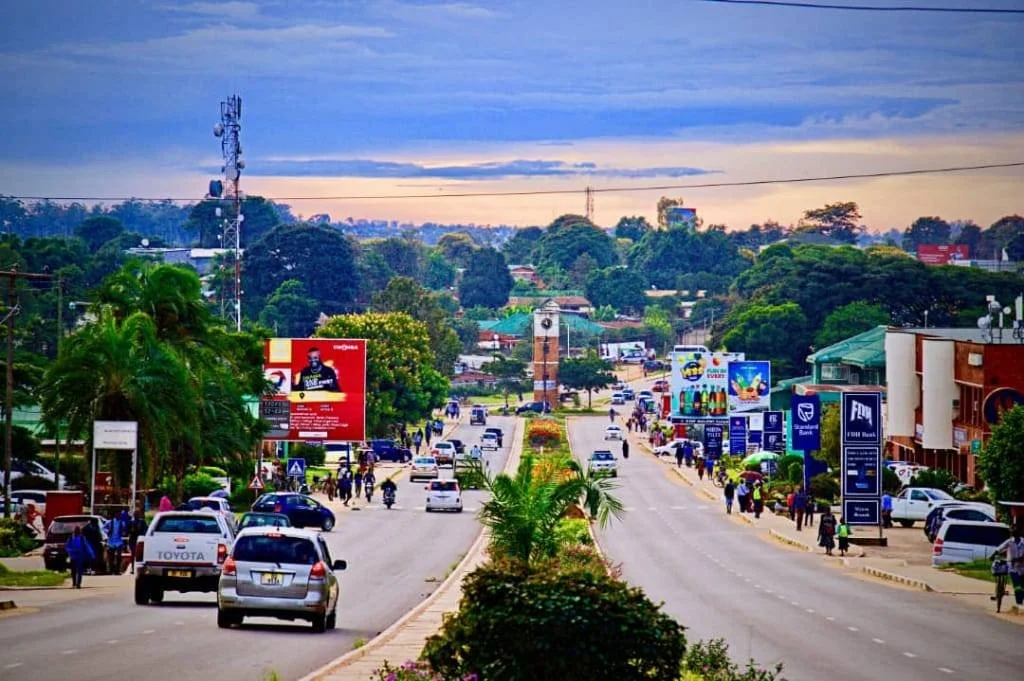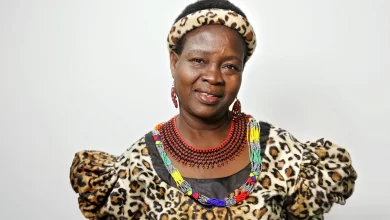Mzuzu roads echo broken promises
At 5.30pm in Mzuzu, the road between the city centre and Luwinga Industrial Site is already jammed. Taxis inch forward, horns blare as tyres bounce over potholes ruining rims and suspensions.
Cyclists thread nervously between stalled vehicles and jagged edges, careful not to step into the dirty verge.

On this four-kilometre strip, the M1 is a daily heartbreak for hundreds heading home. Each trip chips away at time, money, and dignity.
“It’s not a trip road, but a battlefield—not for the faith-hearted,” says Brown Nyondo, gripping the steering wheel as he ducks potholes on his way from work. “You plan for 15 minutes and end up losing an hour.”
On the roadside, Gift Kanyinji, who ferries travellers on a bicycle taxi in the city, steadies himself against a passing vehicle.
“Some curse us and others almost knock us down, but do we have any choice? We have to survive,” he says.
Last year, his colleague, he recalls, spent a month in hospital after ramming into traffic.
“The city is growing, but this road hasn’t,” he says.
The M1 splits Mzuzu like a single, fragile artery from Katoto to Dunduzu via Luwinga.
Trucks hauling fuel and other essential imports from Dar es Salaam Port in Tanzania share the narrow tar with workers, schoolchildren, patients and traders.
Despite repeated government pledges, the road remains narrow and neglected amid rapid population boom.
Mzuzu is a fast-growing city. Its population surged from 128 432 in 2008 to 221 272 in 2018, yet the M1 remains a two-lane affair with shattered edges.
Blantyre and Lilongwe have dual carriageways, but Mzuzu is left behind—with only the Orton Chirwa Highway to show 40 years after it was declared a city.
The battered strip has been skipped in the €95 million M1 rehabilitation funded by the European Investment Bank loan.
From outgoing President Lazarus Chakwera to incoming Peter Mutharika, politicians promise dual carriageways for Mzuzu every election cycle, but shovels rarely hit the ground.
“What we see are merely patches, cheap labour throwing gravel into potholes that reappear within days,” says motorist Omega Bema of Chibavi.
Even the Zolozolo-Luwinga Bypass, conceived to decongest the M1, stalled in 2022 after tarring a short section from Mzuzu Technical College to Mzuzu Botanic Gardens.
“We planned to finish by 2025, but funding thinned, contractors balked at rising costs, and the project stalled,” says Mzuzu City Council spokesperson McDonald Gondwe.
He adds that the council has set aside K5.4 billion to rework sections of the bypass roads and strategic streets, including the M1 stretch.
According to Gondwe, Chief Engineering is putting gravel and temporary fixes in the patches on the M1 stretch from the city centre to Lusangazi, the southern boundary of the Viphya Plantation.
“You can see the kind of work K50 million can do,” he says, adding that an overhaul is the only real solution.
However, it costs about K1 billion to tar a kilometre.
“This is beyond our reach,” he says.
The council received K3.7 billion last year and K5.5 billion this year, but Gondwe says most of it fills deficits left by local revenue.
For Gondwe, the planned dual carriageways and new links are just “strategic plans, not short-term plans”.
Until local revenue improves, the council will continue to patch while waiting for the billions it does not have.
In the run-up to the September 16 General Election, political manifestoes echoed familiar tones: Grand promises, new timelines and maybes.
Mutharika’s Democratic Progressive Party (DPP) promises modern flyovers, interchanges, central bus terminals and a long-discussed bypass skirting the west of the city. There is no mention of smaller access roads in townships where voters endure daily struggles.
On the other hand, Chakwera’s Malawi Congress Party (MCP) pledged a dual carriageway from Lusangazi to Dunduzu, complete with an interchange.
Further, a new bypass, cutting from Mzuzu Secondary School to Dunduzu, is to end congestion in the city centre.
However, the human cost of the neglected roads in Mzuzu immense. For taxi drivers, a single repair can erase a week’s earnings.
Mangaliso Gama, who loses an hour daily commuting to his business place, terms the new promises “a story they tell us every election”.
“Nothing changes,” he says.
Bema has voted three times, hoping for better roads.
He says: “Until we see the promised roads with our eyes, it’s just talk.”
“Meanwhile, I fix something every day: shock absorbers, brakes, always something. If they bring those flyovers, maybe cars will survive. But for now, fix the potholes.”





